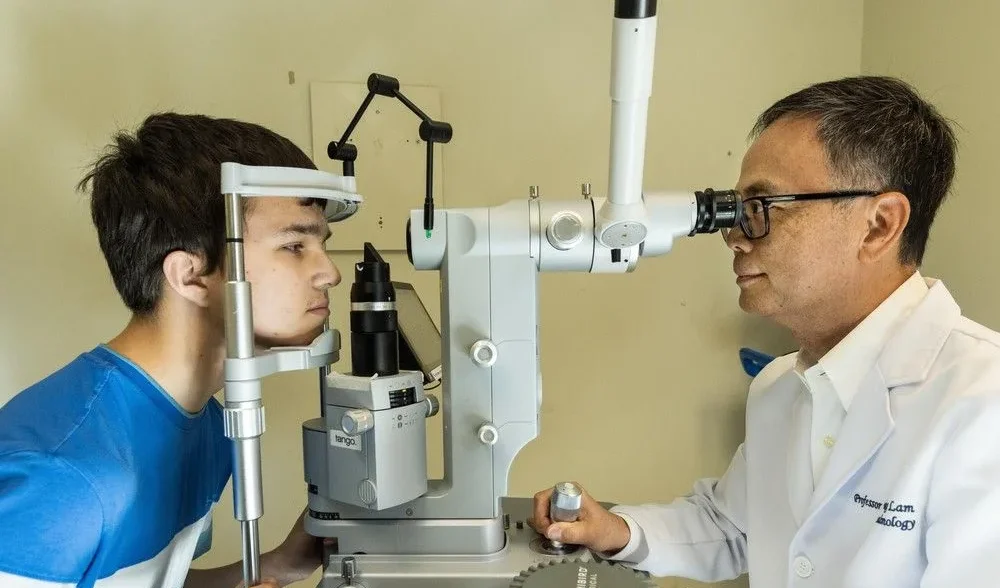Jamie’s story is part of a series on new Brain Bolt technology, made possible by donor funding, being pioneered at Vancouver General Hospital
This story has been updated as of July 11, 2022.
Jamie MoCrazy of Park City, Utah, was one of the world’s top freestyle skiers with her sights set on the Winter Olympics. But in April 2015, while competing in Whistler, Jamie suffered a traumatic brain injury after a horrific crash. Jamie stopped breathing and had to be resuscitated on the mountain. She was airlifted to VGH, where doctors working in critical care medicine saved her life using innovative treatment and technology only made possible through donor support.
Dr. Myp Sekhon, the ICU physician on call that night, remembers the 23-year-old when she was wheeled into the ICU. “She was completely unconscious, in a coma, and showed devastating signs of severe brain injury,” says Dr. Sekhon. “She needed emergency surgery. Based on our traditional diagnostic models and available therapies, her chance at a full recovery was slim.”
VGH neurosurgeons and Dr. Sekhon used a revolutionary procedure that night – one of the first times it had been attempted in North America. They placed special catheters, dubbed the Brain Bolt into Jamie’s brain. The information provided allowed them to manipulate Jamie’s blood pressure so that her brain received the exact amount of oxygen it needed to heal and recover.

Dr. Sekhon and his colleague, Dr. Don Griesdale, had learned this autoregulation monitoring procedure while studying traumatic brain injury at Addenbrooke’s Hospital at the University of Cambridge. Both doctors have since established a close and ongoing collaboration with their neurocritical care colleagues at Addenbrooke. “We rely heavily on their clinical expertise with traumatic brain injuries,” says Dr. Sekhon. “We are now actively co-investigating how these brain monitors can help brain injury after cardiac arrest.”
Dr. Sekhon and his critical care colleagues are immensely grateful to Linda Nimmerrichter Holmes and her husband, Eric, who helped fund the monitor that helped save Jamie’s life.
Jamie made a full recovery. She is back skiing for fun and taking life one day at a time. “I owe my complete recovery to all the ICU doctors, nurses and medical staff who took amazing care of me”, says Jamie. “I especially owe my family. They never stopped working to help me recover.” Her biggest goal now is to help inspire other people to set goals and work towards them.
Jamie is now happily married to her husband, Reggie Clark. Read more about their wedding and Jamie’s happy ending as reported by the New York Times.
The Brain Bolt is one of many donor funded innovations that is saving lives right now at Vancouver General Hospital. Learn more.
[:zh]Jamie Crane-Mauzy of Park City, Utah, was one of the world’s top freestyle skiers with her sights set on the Winter Olympics. But in April 2015, while competing in Whistler, Jamie suffered a traumatic brain injury after a horrific crash. Jamie stopped breathing and had to be resuscitated on the mountain. She was airlifted to VGH, where doctors working in critical care medicine saved her life using innovative treatment and technology only made possible through donor support.
Dr. Myp Sekhon, the ICU physician on call that night, remembers the 23-year-old when she was wheeled into the ICU. “She was completely unconscious, in a coma, and showed devastating signs of severe brain injury,” says Dr. Sekhon. “She needed emergency surgery. Based on our traditional diagnostic models and available therapies, her chance at a full recovery was slim.”
VGH neurosurgeons and Dr. Sekhon used a revolutionary procedure that night – one of the first times it had been attempted in North America. They placed special brain catheters into Jamie’s brain. The information provided allowed them to manipulate Jamie’s blood pressure so that her brain received the exact amount of oxygen it needed to heal and recover.

Dr. Sekhon and his colleague, Dr. Don Griesdale, had learned this autoregulation monitoring procedure while studying traumatic brain injury at Addenbrooke’s Hospital at the University of Cambridge. Both doctors have since established a close and ongoing collaboration with their neurocritical care colleagues at Addenbrooke. “We rely heavily on their clinical expertise with traumatic brain injuries,” says Dr. Sekhon. “We are now actively co-investigating how these brain monitors can help brain injury after cardiac arrest.”
Dr. Sekhon and his critical care colleagues are immensely grateful to Linda Nimmerrichter Holmes and her husband, Eric, who helped fund the monitor that helped save Jamie’s life.
Jamie made a full recovery. She is back skiing for fun and taking life one day at a time. “I owe my complete recovery to all the ICU doctors, nurses and medical staff who took amazing care of me”, says Jamie. “I especially owe my family. They never stopped working to help me recover.” Her biggest goal now is to help inspire other people to set goals and work towards them.
Share this:


